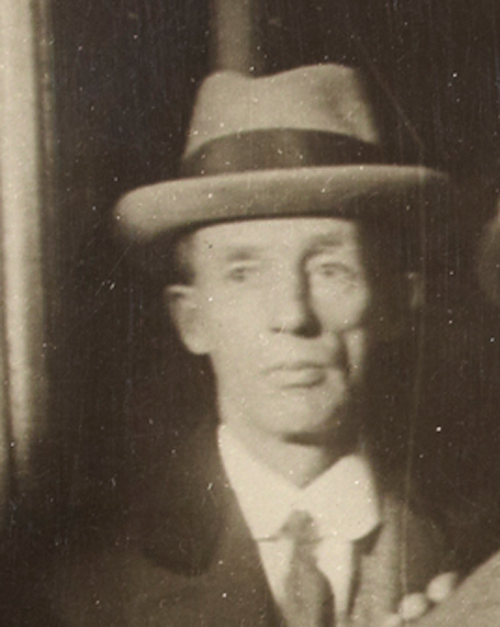Anger at execution of Erskine Childers and four others raises concerns of reprisals
Dublin, 27 November 1922 – Erskine Childers was executed by firing squad on 24 November at Beggar’s Bush Barracks – previously the headquarters of the Auxiliary Division of the RIC.
The execution occurred at 7am and was communicated to the public via an official announcement stating that he had been found guilty by a military court of being in possession of an automatic pistol without the proper authority. Mr Childers had been apprehended by a party of the national forces at Annamoe House, Co. Wicklow, on 10 November and seven days later, on 17 November, was tried in camera at Portobello Barracks.
Before his death, it is reported that Mr Childers said to the Church of Ireland Dean of Kildare: ‘I am at peace with all the world. I bear no grudge against anyone, and I trust no one bears any against me.’
This accords comments from Mr Childers on the day of his trial where he is reported to have said: ‘Whether I am to live or to die it must help Ireland. The way is clear before me; I am serene.’
The execution of Mr Childers drew a muted reaction initially, but the latest issues of the anti-treaty republican War News have raised tensions by intimating that reprisals are likely. After naming those ministers and TDs who voted for the setting up of the military courts, the War News continued:
‘No person who is in any way responsible for this act must be allowed to evade responsibility. There is only one means by which the nation can cleanse itself – the casting out and just punishment of these, and all other Irishmen who make their country a byeword through the cowardly subservience to the English enemy. It is the work of every republican to see that both the repentance and the retribution for this crime will be complete.’
Addressing the Dáil on 28 November, George Gavan Duffy described Mr Childers as man whom he ‘deeply revered’ and prior to the execution, in a doomed attempt to save Childers’ life, Éamon de Valera issued an appeal on behalf of the people of Ireland for a man he considered to be a ‘a faithful servant and a loyal son.’
British Pathé newsreel reports of the execution of Erskine Childers
Born in England in 1870, Erskine Childers was a veteran of the Boer Wars who enjoyed great success with his 1903 spy thriller, The Riddle of the Sands. Less than a decade later, he published a pamphlet, The framework of home rule. In recent years he became active in the Sinn Féin cause. His 1920 pamphlet, Military Rule in Ireland, exposed the ‘disreputable and cowardly’ actions of a British military regime that was directed at the ‘suppression of civil and national liberty’.
Childers was a close aide of Mr de Valera and accompanied him to London during the early talks with the British government that followed the truce. Later, during the treaty negotiations, he acted as one of the secretaries to the conference in London.
He became a TD in 1921 and voted against the treaty in the Dáil earlier this year.
Other executions
The execution of Erskine Childers follows that of four other men
– James Fisher, Peter Cassidy, Richard Twohig, John Gaffney
– in Kimainham Jail on 17 November after a military court
found them guilty of the same offence: possession of a revolver
without proper authority.
Speaking of those four prior executions, Richard Mulcahy, the Minister of Defence, acknowledged that these were drastic measures but stated that there was no alternative. There were people, he said, who wanted to bring the English back and the government was absolutely convinced that ‘unless… we deal in the strongest possible way with those people who traverse our streets at night, shooting down our people, and going around our country day by day wrecking our railways, robbing our people, taking their lives, destroying the whole fabric of industry and society in this country – unless we take very stern measures, we will not throw back the tide of lawlessness and the tide of lust and loot that some mad political leaders have stirred up in their train in this country. The situation in which these actions were taken is known to every person here and is thoroughly realised by every person in the country, and anybody who goes around with a loaded revolver in his pocket on the street seeking to take the lives of other men must be made face the fact that by doing so he forfeits his own life.’
Mulcahy was responding to a query from Labour leader, Thomas Johnston, who expressed shock at the news of the four executions and demanded justification for the actions taken by the government.
[Editor's note: This is an article from Century Ireland, a fortnightly online newspaper, written from the perspective of a journalist 100 years ago, based on news reports of the time.]





















